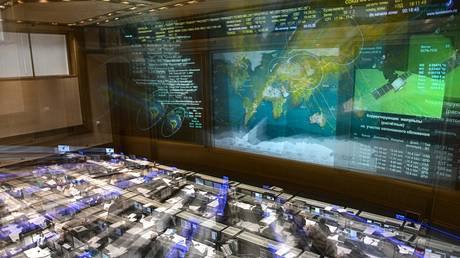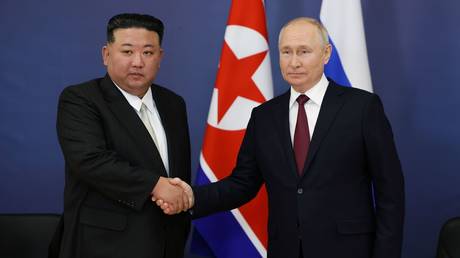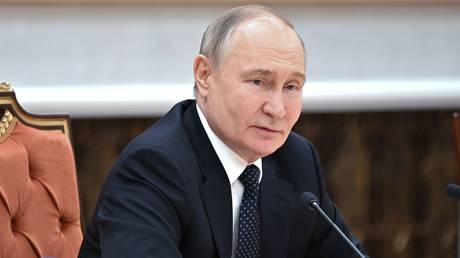Putin Proposes Changes to Constitution, Medvedev Resigns: What’s Going On?
by Natylie Baldwin, Consortium News:
 Natylie Baldwin analyzes last week’s major shakeup in domestic Russian politics.
Natylie Baldwin analyzes last week’s major shakeup in domestic Russian politics.
There’s been a major shakeup this week in domestic Russian politics. It kicked off with President Vladimir Putin’s annual address to the Federal Assembly earlier this week, which usually happens in the spring, not in January. Among other topics, Putin announced changes he wanted made to the Russian constitution, which he had telegraphed during his December Q&A. This was followed by Prime Minister Dmitry Medvedev’s resignation (along with his cabinet) and the appointment of Mikhail Mishustin as his replacement.
However, before we delve into the details of this turn of events, it’s important to review what Putin’s priorities have been for Russia since he came to power, which will help to place these latest events into a larger context.

Russian President Vladimir Putin Preparing to Address the Federal Assembly, January 2020. (Kremlin)
As I’ve discussed many times before, Russia was on the verge of being a failed state in 2000 when Putin took the helm. There were crises in every major area of state governance: the military was in shambles, the economy had collapsed, crime was rampant, massive poverty pervaded the country, and Russians were experiencing the worst mortality crisis since World War II.
Putin’s Three Priorities
Having studied Putin’s governance and how Russia has fared over the two decades in which he has ruled, it’s clear that he’s had three main priorities for Russia in the following order:
- Ensuring Russia’s national security and sovereignty as an independent nation. In previous writings, I’ve explained the importance of national security to Russians as a result of their history and geography;
- Improving the economy and living standards for Russians; and,
- The gradual democratization of the country.
These three priorities are reflected in this week’s address to the Federal Assembly, the equivalent of the U.S. president’s annual state of the union. Putin reiterated to his audience that the first priority of national security and state sovereignty had been secured:
“For the first time ever – I want to emphasise this – for the first time in the history of nuclear missile weapons, including the Soviet period and modern times, we are not catching up with anyone, but, on the contrary, other leading states have yet to create the weapons that Russia already possesses.
The country’s defence capability is ensured for decades to come, but we cannot rest on our laurels and do nothing. We must keep moving forward, carefully observing and analysing the developments in this area across the world, and create next-generation combat systems and complexes. This is what we are doing today.”
Putin goes on to emphasize that success on this first priority enables Russia to focus even more seriously on the second priority:
“Reliable security creates the basis for Russia’s progressive and peaceful development and allows us to do much more to overcome the most pressing internal challenges, to focus on the economic and social growth of all our regions in the interest of the people, because Russia’s greatness is inseparable from dignified life of its every citizen. I see this harmony of a strong power and well-being of the people as a foundation of our future.”
In light of the abysmal living conditions that Putin inherited in 2000, he did a remarkable job over the next decade of cutting poverty, improving infrastructure, restoring regular pension payments as well as increasing the amount, raising wages, etc. Russians, whether they agree with everything Putin does or not, no matter how frustrated they may get with him regarding particular issues, are generally grateful to him for this turnaround in their country. This progress on his second priority has underpinned his approval ratings, which have never dipped below the 60’s.
But his comments during his address reflected mixed success currently as economic conditions for Russians have stagnated over the past few years. One contributing factor has been the sanctions imposed by the West in response to Russia’s reunification with Crimea as a result of the 2014 coup in Ukraine.
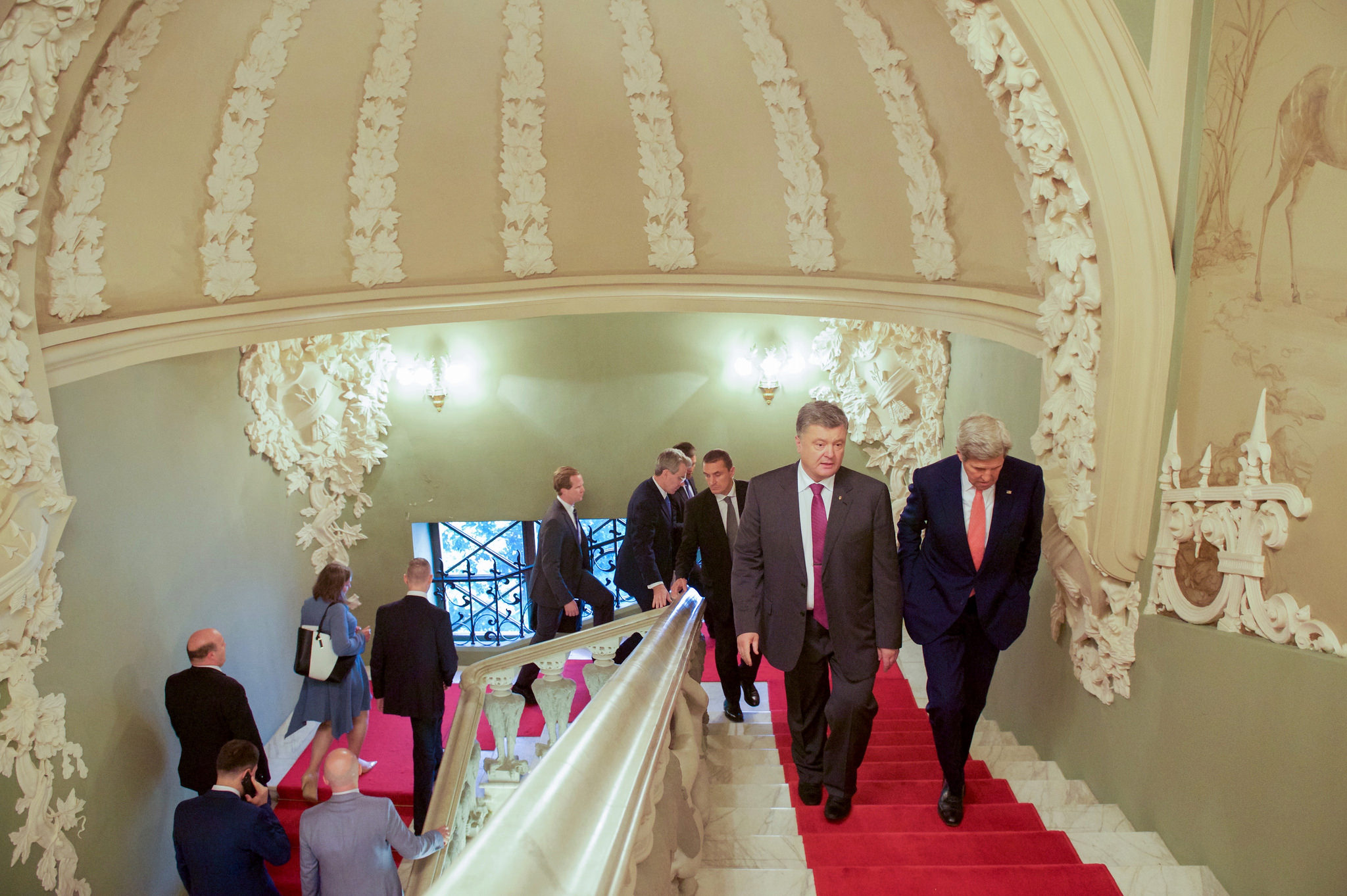
U.S. Secretary of State John Kerry and Ukrainian President Petro Poroshenko climb the stairs in the House of Chimeras in Kyiv, Ukraine, en route to a working lunch following a bilateral meeting and news conference on July 7, 2016. (State Department)
Putin has done a respectable job of cushioning the Russian economy from the worst effects of the sanctions and even using them to advantage with respect to import substitution in the agricultural and industrial sectors. However, polls of the population have consistently shown over the past two-to-three years that Russians are losing patience with the lack of improvement in living standards.
Another problem that is limiting economic progress is the pattern of local bureaucrats not implementing Putin’s edicts. For example, in his 2018 and 2019 addresses, Putin laid out an expensive plan for economic improvement based on infrastructure projects throughout the country as well as improving health and education. Budget allocations were made for these projects and the funds released, but many have only been partially realized. Confirming what has been reported in some quarters, Putin complained about the deficiencies in the roll-out of these policies during his address.
I believe this is connected to the subsequent resignation of Prime Minister Dmitry Medvedev who will now step into the newly created role of deputy chairman of the Security Council, while his cabinet remains in a caretaker capacity until a new government is formed.
Medvedev has not been particularly effective as prime minister and has been very unpopular over the past several years as suspicions of corruption have swirled around him. He is also problematic ideologically as he has always embraced neoliberal economic policy which has no traction with most of the Russian people due to the experience of the 1990’s when neoliberal capitalists ran amok. He also lacks the charisma and creative problem-solving skills of Putin.
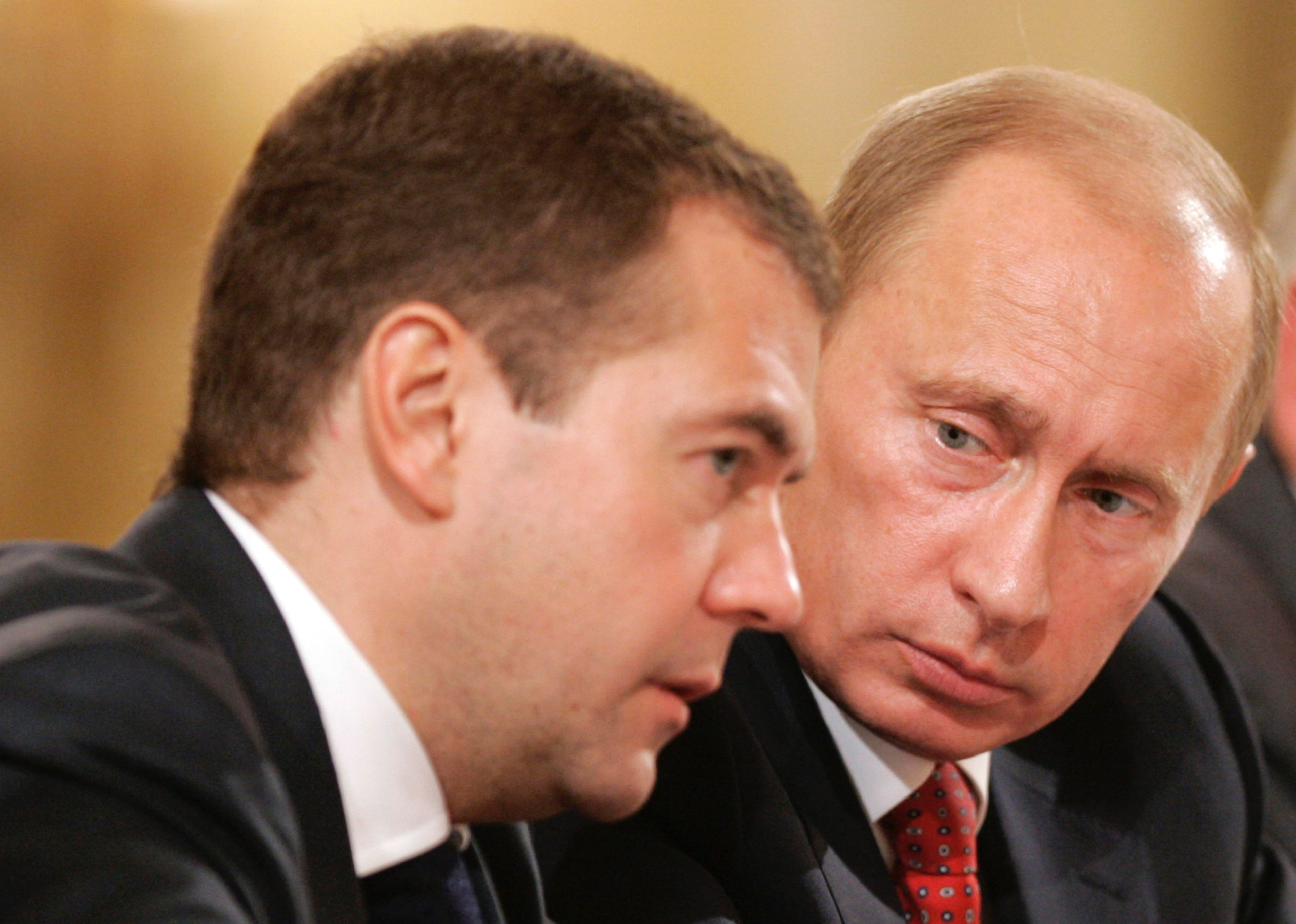
Dmitry Medvedev with Vladimir Putin in 2008. (Wikimedia Commons)
But in all fairness, no prime minister will have an easy job in Russia if significant changes are needed or a transition is still in progress. Throughout Russia’s history, whenever leaders wanted to reform the system, they’ve always encountered the problem of implementation in terms of the bureaucracy. Whether out of malevolence, fear of losing perceived benefits, inertia, or incompetence, bureaucrats lower down the chain don’t always put the reforms effectively or consistently in place. Putin has complained at various times of local bureaucrats’ intransigence and its negative effects on average citizens whom they are supposed to be serving.
Read More @ ConsortiumNews.com
Loading...

